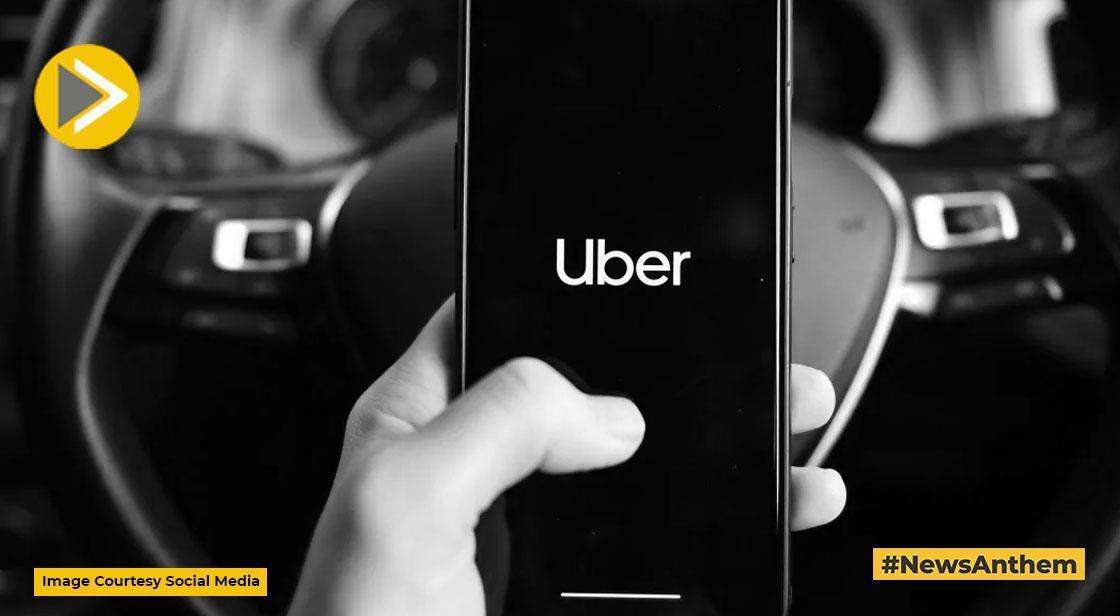Uber Partners with ONDC to Expand Metro Ticketing and Logistics via 'WeToBeUber' Model

News Synopsis
Following Rapido, Uber has become the latest ride-hailing company to integrate with the Open Network for Digital Commerce (ONDC) to offer metro ticket booking services. Commuters in Delhi can now conveniently purchase Delhi Metro tickets directly through the Uber app, streamlining travel with a simple and seamless experience.
‘WeToBeUber’ Model Enhances Uber’s Logistics Capabilities
Uber is also integrating its delivery operations with ONDC through an innovative initiative named the “WeToBeUber” model. This strategy is designed to accelerate Uber’s logistics services by leveraging ONDC’s expansive digital infrastructure. Currently, Uber’s delivery network includes 1.4 million partners, and this collaboration aims to enhance service speed and reach.
Leveraging India’s Digital Infrastructure for Innovation
Praveen Neppalli Naga, Uber’s CTO for Mobility & Delivery, highlighted that ONDC’s platform utilizes India’s advanced digital public infrastructure — including Aadhaar, UPI, mobile internet, and cloud computing. These technologies enable Uber to seamlessly integrate metro ticketing within their app. Uber’s tech hubs in Bengaluru and Hyderabad have played a pivotal role in developing this innovation, showcasing India’s growing technological prowess.
Easy Metro Ticket Booking with QR and API-enabled Payments
The integration introduces a QR-based metro ticket booking system within the Uber app, supported by API-enabled payments for ease and security. This initiative currently serves Delhi Metro commuters and lays the foundation for future expansion. Uber plans to roll out metro ticketing in three additional cities by the end of 2025.
ONDC’s Growing Role in Mobility Services
ONDC is increasingly focusing on mobility services, with Rapido pioneering metro ticket booking for Chennai Metro Rail Limited (CMRL) in early 2024. Subsequently, Rapido expanded this to the Delhi Metro Rail Corporation (DMRC) by May 2025. This reflects ONDC’s growing footprint in urban transit and digital commerce.
ONDC Transaction Milestones and Sector Trends
In March 2025, ONDC achieved a record 16 million transactions, more than doubling its previous year’s performance. The platform also surpassed 200 million total transactions, signaling robust growth. Within ONDC, the logistics sector is the fastest-growing segment, showing rising order volumes, while the retail segment, including online shopping and food delivery, has experienced a recent decline.
No-Commission Model Benefits Riders and Drivers
A key feature of ONDC is its subscription-based, no-commission approach, which contrasts with traditional ride-hailing services that often deduct 20–30% per ride. Uber has adopted this model for auto-rickshaw services in India, implementing a zero-commission system where drivers and riders negotiate fares directly.
Direct Payment System Ensures Fair Earnings
Under Uber’s zero-commission model, payments to auto-rickshaw drivers are made directly by passengers either in cash or via UPI transfers to the driver’s personal ID. The Uber app disables payment options like cards or Uber credits for these rides, ensuring that drivers receive the full fare without any platform deductions.
Government Launching ‘Sahkar Taxi’ to Compete Commission-Free
In March 2025, India’s Home Minister Amit Shah announced plans for a government-backed ride-hailing cooperative called Sahkar Taxi. This platform aims to rival Uber and Ola by offering similar services without charging commission fees, aligning with ONDC’s vision of fair and equitable digital commerce.
Future Outlook for Ride-Hailing and Logistics on ONDC
With Uber’s strategic moves and the government’s cooperative taxi model, India’s ride-hailing and logistics sectors are undergoing significant transformation. The adoption of open networks and no-commission systems may reshape the market dynamics, benefiting drivers and consumers alike.









